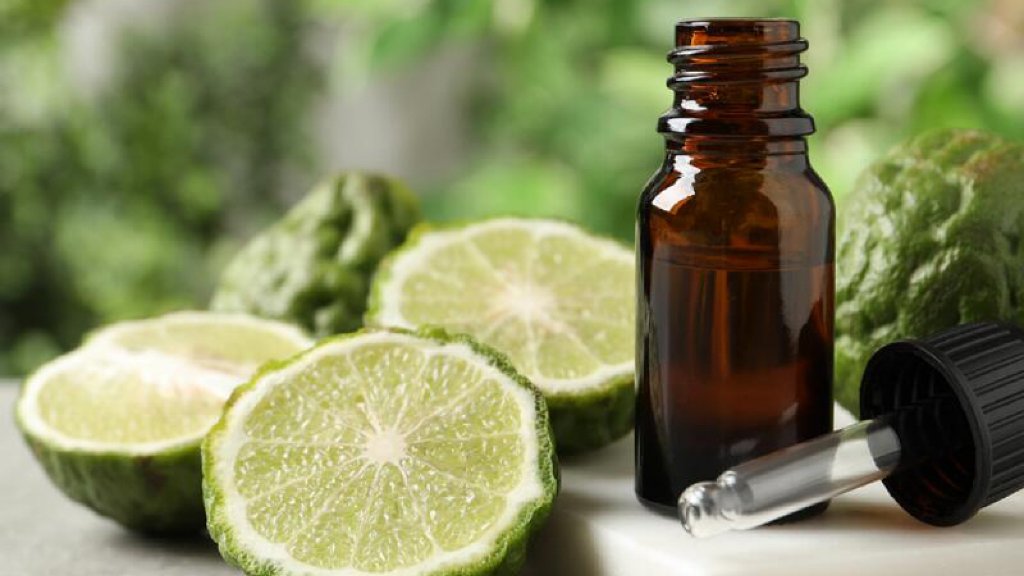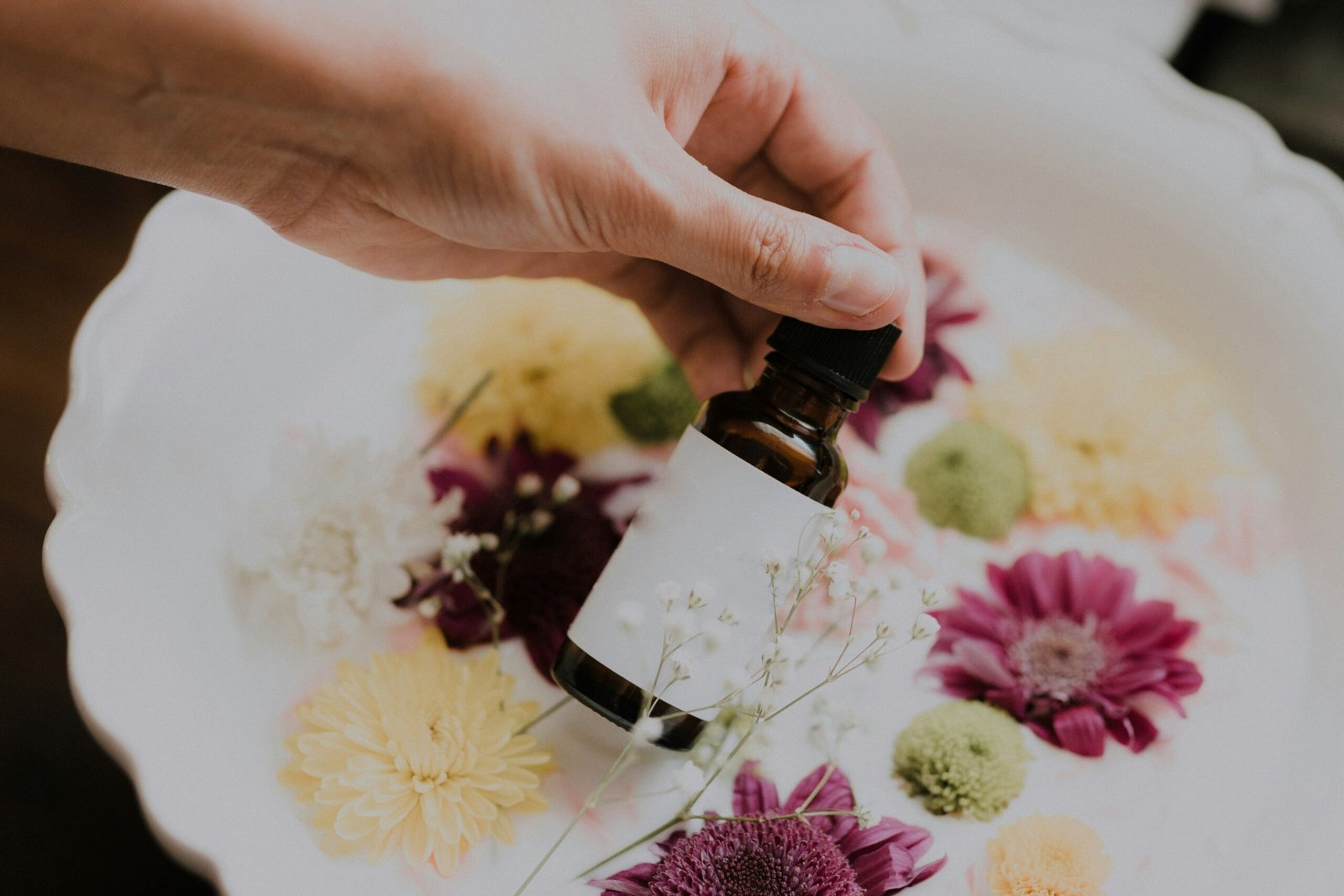Find out how essential oils and aromatherapy might naturally help with stress. Discover six potent essential oils, their advantages, and how best to apply them for emotional balance and relaxation.
Aromatherapy and Stress Relief: Introduction
Long valued for its capacity to support both physical and mental health, aromatherapy is an ancient technique using plant-based essential oils. Terpenes—aromatic molecules that can set off particular physiological and psychological reactions when breathed or absorbed through the skin—are found in essential oils, according to scientific studies.
Aromatherapy provides a natural route to relaxation and equilibrium in our modern society, when stress has become an uninvited friend. Whether used personally at home or professionally at a spa, these potent plant extracts can help release daily life’s strain.

The Research of Essential Oils
Studies show that terpenes—fragrant chemicals that have certain physiological and psychological effects when breathed or massaged into the skin—abound in plant-based essential oils. These molecules interact remarkably with our neurological system to affect our emotional state as well as our physical condition.
For a spa treatment, for example, massage therapists work on muscles using essential oils, therefore releasing tension in places including the neck, shoulders, and lower back. Therapeutic touch combined with aromatic chemicals acts in concert to offset the physical expressions of modern stress.
Essential Oils for Release of Stress
Rose oil: The emotional healer
Rose oil is especially notable for its amazing capacity to set off the production of relaxing neurotransmitters in the brain. This valuable extract reacts fast to:
Lower your anxiety and stress levels.
Give natural pain alleviation.
Establish emotional well-being and happiness.
The complicated chemical makeup of the oil makes it especially good for encouraging emotional balance and lowering stress.

Lavender Oil: Nature’s Calm Agent
Linalool is a potent chemical found in lavender oil that can greatly lower anxiety. This thoroughly investigated basic essential oil:
aids control of brain neurotransmitter levels.
relieves overactive mental states
encourages serenity and peaceful sleep.

Sandalwood Oil: Modern Stress Inspired by Ancient Wisdom
Especially recommended for meditation techniques, sandalwood essential oil grounds one deeply. Its main advantages come from:
Eliminating intrusive ideas
Getting the mind into a calm, concentrated condition
Developing groundedness and emotional stability

Oil Chamomile: Subtle Release for Mind and Body
Rich in helpful substances including coumarin and chamazulene, chamomile oil has several medicinal effects:
calms the body’s physical strain.
promotes natural detoxifying mechanisms
helps to relax the nervous system.
offers mild yet potent stress release.

Neeroli Oil: The Mood Runner
Derived from orange blossoms, neroli oil has a special capacity to increase brain dopamine release. Among their advantages are:
Improving attitude organically
Encouraging delight
Encouraging intense relaxation
Relieving stress in headaches

Berdamot Oil: Citrus Comfort to Calm Anxiety
Renowned for its remarkable ability to boost mood, bergamot oil is a good treatment for mild to moderate depression. From citrus, this oil can:
quickly improve attitude.
Create happiness for yourself.
Give emotional simplicity.
Support the lowering of stress.

Alternatives in Aromatherapy: Traditional Chinese Sachets
Traditional Chinese sachets provide a sophisticated answer for individuals who like substitutes for oil-based perfumes. This time-honoring custom entails:
Choosing favorite spices and herbs
crushing them into a fine powder
Setting the mixture in little cloth bags
Making portable aromatherapy instruments out of them
One can use these sachets in:
carried on your individual
Arranged beside your bedside
Usually used to naturally smell closets or drawers
Appropriate Use Policies
When using essential oils in your regimen for stress release:
Always correctly dilute oils using a carrier oil.
Test patches prior to complete deployment.
Stow oils in dark glass containers.
Stow oils out of direct sunlight.
Respect advised dose recommendations.
Frequently Asked Questions
Many people say that within five to ten minutes of application or inhalation, essential oils help them to relax. Individual answers could differ, though.
Indeed, mixing is really usual behavior. Still, make sure you keep correct dilution ratios and grasp the qualities of every oil.
Though generally harmless, some people could be sensitive to specific oils. Particularly if you are pregnant, nursing, or on drugs, always do a patch test and see a healthcare specialist.
Store oils cool, darkly in dark glass bottles. Their medicinal qualities can be kept for one to two years by appropriate storage.
Although they can help with stress management, essential oils should not take the place of advised medical therapies. Always discuss your stress control strategy with medical professionals.
Most basic oils are everyday useable when correctly diluted. Starting with less frequent use and progressively increasing as you see how your body responds, though, is recommended.
Conclusion
By means of therapeutic use of essential oils, aromatherapy presents a natural, efficient means of stress management. Whether your preferred natural remedies are conventional essential oils or investigative substitutes like Chinese sachets, they can help much in controlling daily tension and enhancing emotional wellness. To maximize the advantages of aromatherapy and minimize any possible risks, keep in mind that you should approach it knowing appropriate knowledge and respect for safe usage rules.








